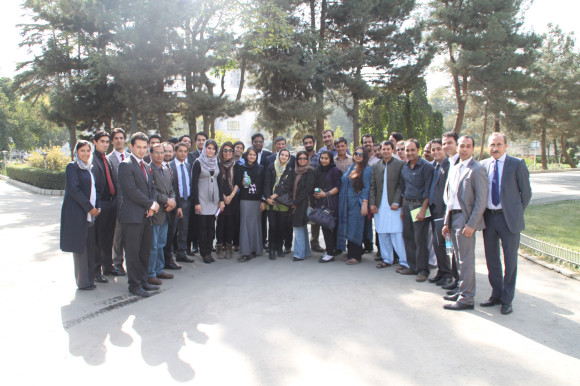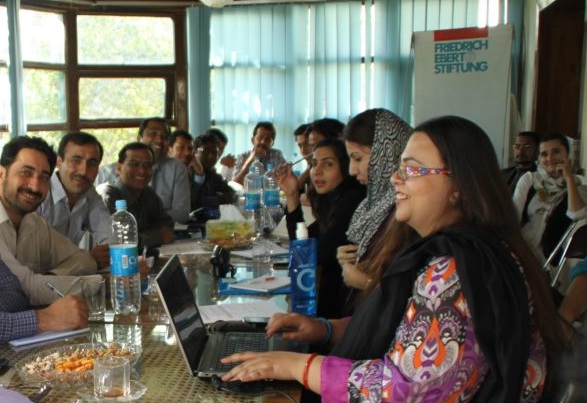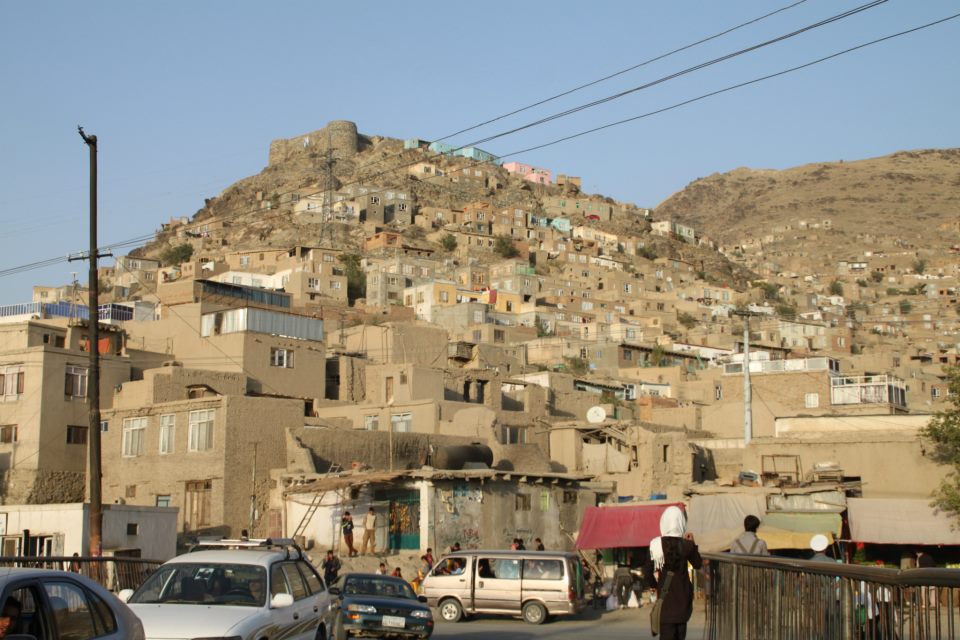We can’t change our neighbors so we have to change our attitude and relationship with our neighbors. This is the main concept of two-phase project done by a German political foundation, Friedrich-Ebert-Stiftung (FES) in Pakistan and Afghanistan. The program is titled Af-Pak journalists exchange program: ‘Understanding the neighbor’.
In this fellowship program, 22 journalists from Afghanistan and Pakistan gathered together twice, once in Islamabad and once in Kabul. The young journalists form both sides of the Durand Line started a blog after meeting for the first time in Bara Gali, a hill station near Islamabad. The about section of the blog titled Understanding the neighbor says:
This blog is a collective effort of all of us to stay connected and to understand our neighbour better…Together we will bridge all the gaps and mend all the fences that keep us away from each other.

22 journalists from Pakistan and Afghanistan on the ‘Understanding the neighbors program’. Image by author.
Beenish Mohsin, Diplomatic correspondent at ARY news channels shares, what is her expectations from this program.
The first phase of the program was “A week of breaking stereotypes“, which worked well for many of the participants. Ayesha Hasan from the Express Tribune, Pakistan, shares her experience:
Hailing from all four corners of the two countries, we, journalists, returned home with positive images, changed perceptions, unforgettable memories and most important of all: new friends. Everyone had a unique story to tell, an idiosyncratic account of their lives and pied explanations and expectations, but some left an impression on my mind.
The experience of Afghan journalist Faisal Moonzejar was an eye opener. He gives voice to his suspicions he had about his neighbor, Pakistan:
My Afghan fellows were tired because of the long flights and went to rest. But I came to talk to my Pakistani counterparts. They offered me to join them at trekking. First I wasn’t interested, but when I saw their enthusiasm and friendliness, which reminded me of my childhood picnics with my school mates, I readily accepted the offer.
In another post‚ ‘we have no one to blame’, Faisal Moonzejar writes about what he and his fellow Afghan journalists lack:
“I have realized that Pakistan is not the problem. The main problem is that we always blame Pakistan for our internal crises – the ethnic matters. When I was a child, I was told that Shiite (Ahle Tashee) are the ‘dirtiest’ and was forbidden from going to their homes or accepting water or anything to eat from the let alone making friends with them.”
The participants mutually worked on investigative, in depth stories about the information darkness in both the countries about each other.
In one of the reports the journalists conclude:
Journalists continue to face challenges in both Afghanistan and Pakistan. The only way out is if the governments of either country allow exchange of information and broadcast of its respective TV channels across the borders.
They also tried to dig out stories about mutual cooperation and trade links that can benefit the people of both countries. One of the follow finds out that Kabul is the new Dubai for Pakistanis.
Sher Badshah’s job encouraged his brother Sardar Badshah to come to Afghanistan in search of a job. Now, he gets a salary of 500 US dollars as a cook.
Ayesha Hasan was enthralled to see the women parliamentarians, social activists and diplomats in Kabul. She writes:
No matter how difficult it may be to overcome age-old Afghan traditions, women seem to be slowly making their presence felt in the political domain. One indication of this is the Taliban’s absence of dissent to the presence of women in the High Peace Council’s governing body that is assigned with carrying out peace negotiations with them.
I wrote in that blog:
They will make the world understand the Af-Pak relation with their new understanding. They are ready to challenge the decades old established narratives about their neighbors- the narratives that are missing in the public sphere. I am very happy while writing this that these journos are no more neighbors, they happily call each other friends now. Mission accomplished!
Please also read our previous report on the same program.









1 comment